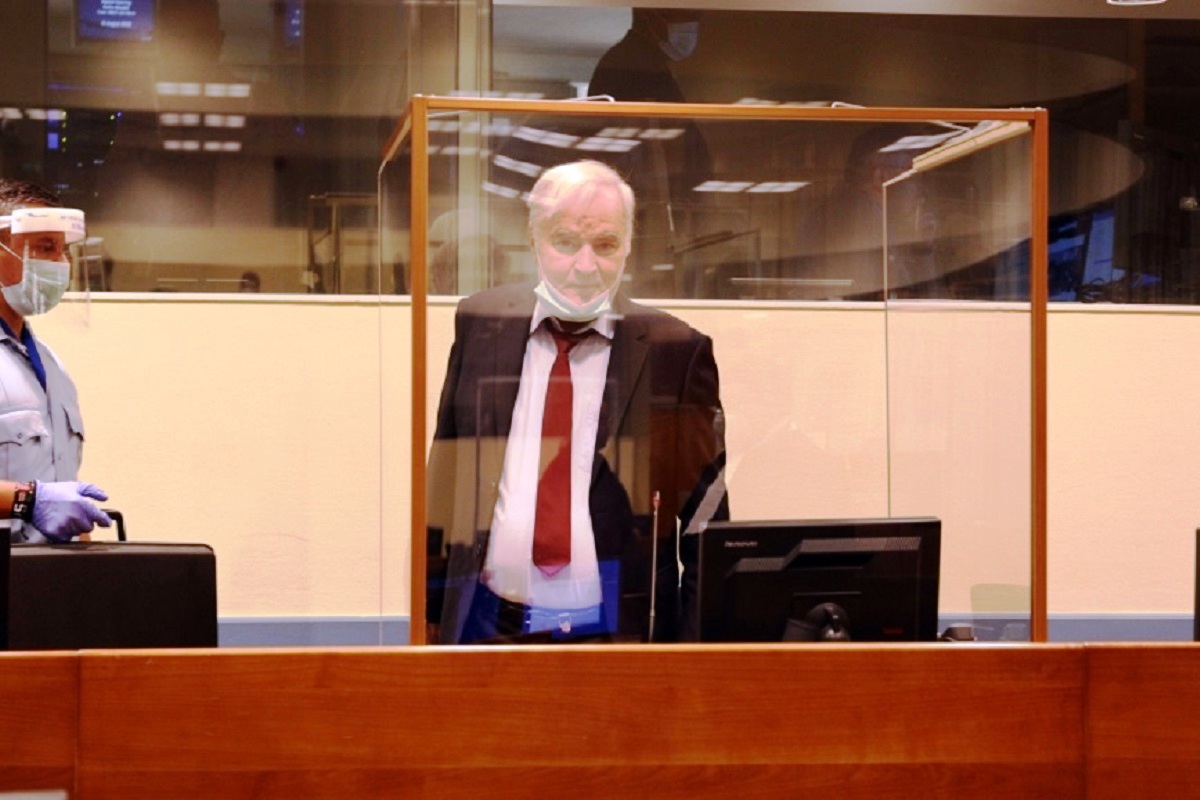Tuesday’s comeuppance for the former Bosnian Serb commander, Ratko Mladic, signifies that the law has eventually caught up with him after 26 years. The bare facts are horrendous enough. Mladic had lost his appeal against a 2017 conviction for genocide, war crimes and crimes against humanity. The judgment by the UN court is in a sense a victory for humanity.
The court upheld the life sentence for his role in the killing of about 8,000 Bosnian Muslim (Bosniak) men and boys in Srebrenica in 1995. That massacre, in an enclave supposedly under UN protection, was the worst atrocity in Europe since World War II. Having lost his genocide appeal, it was not clear till Thursday morning as to where Mladic ~ who has incurred the epithet of ‘Butcher of Bosnia’ ~ will serve the rest of his sentence. Mladic was fighting a losing battle.
Advertisement
The five-person appeals panel in The Hague found that he had failed to provide evidence to invalidate the previous convictions against him, although the presiding judge dissented on almost all counts. However, the appeals chamber also dismissed the appeal brought by the prosecution, which had sought a second conviction against Mladic for crimes committed against Bosnian Muslims and Bosnian Croats in some other areas during the war.
Such technicalities, which continued throughout the session, had delayed the verdict. Mladic had denounced the tribunal during his appeal hearing in August, calling it a “child of Western powers”. His lawyers had argued he was far away from Srebrenica when the massacre happened. Mladic was one of the last suspects to face trial at the UN’s International Criminal Tribunal for the former Yugoslavia.
He was arrested in 2011 after 16 years on the run. In 2017 he was found guilty of genocide over Srebrenica, but acquitted of genocide over his army’s 1992 campaign, in which Bosniaks and Bosnian Croats were expelled from their homes or detained in appalling conditions. However prolonged the trial, the tangled skein of details has been taken care of.
In 2016, the same court had convicted the former Bosnian Serb leader, Radovan Karadzic, of planning the Srebrenica massacre, among other crimes. His initial 40-year sentence for genocide and war crimes was later increased to life in prison in 2019 ~ the remainder of which he will serve in the UK. The judgment against Mladic, after a quarter century’s suspense, has been greeted as much by unconcealed glee and dissent.
Survivor Semso Osmanovic, who lost 23 of his family members in the massacre, said that the verdict meant he would finally be able to return to his home town. Some of the survivors who travelled to The Hague hoped that Mladic would use his last public appearance to offer an apology that could help reconciliation in the still divided region. When the final judgment was pronounced, the man guilty of severing so many lives offered only silence.
